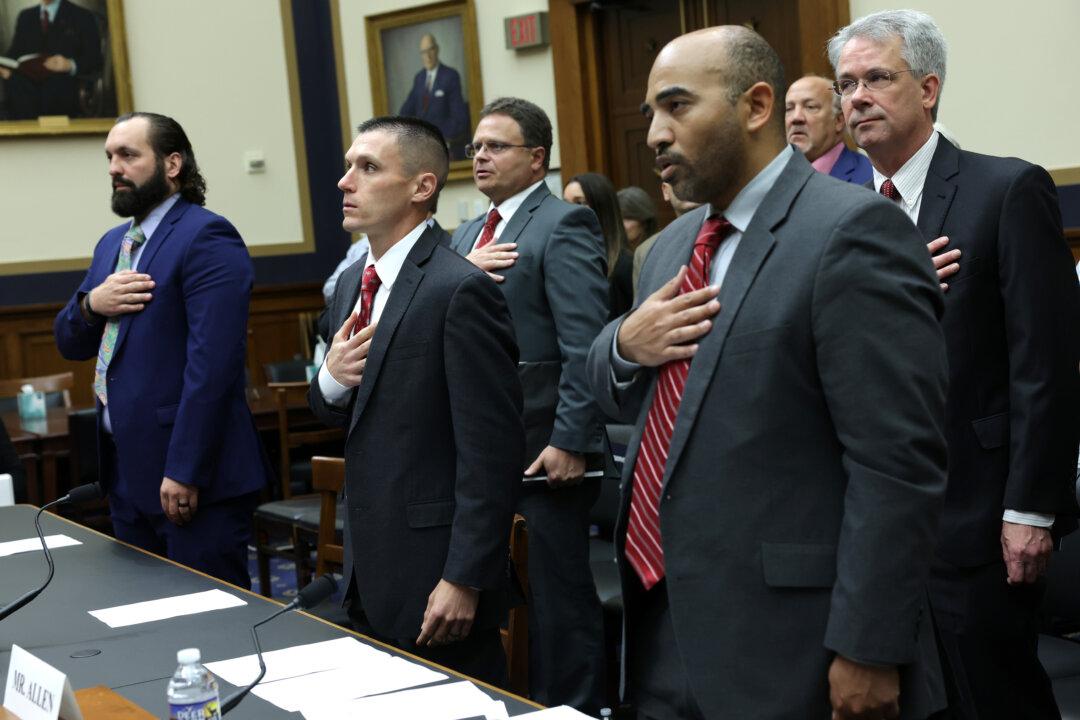Democrats on the House Judiciary Select Subcommittee on Weaponization of the Federal Government repeatedly raised parliamentary procedural objections to disrupt the panel’s May 18 hearing on retaliation against three FBI agents-turned-whistleblowers.
At issue for the Democrats was the fact that suspended FBI agent Marcus Allen had talked to Republican members of the subcommittee before the hearing but had declined to do so with Democrats present.





